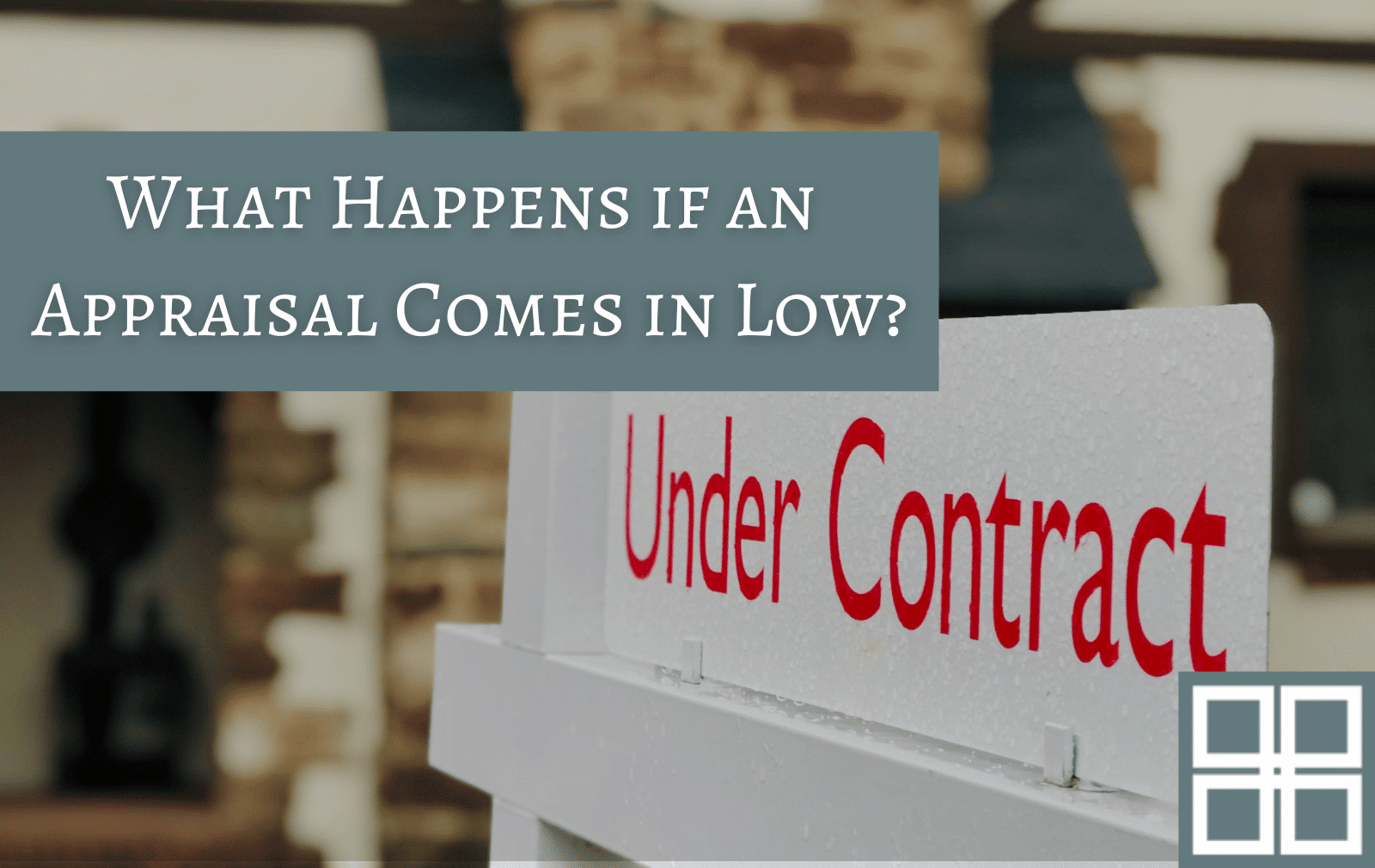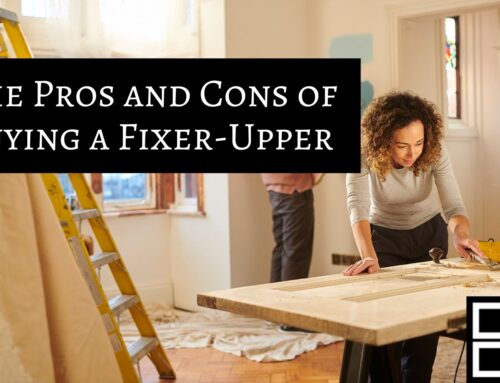What Happens if an Appraisal Comes in Low?
It’s no secret that if you’re selling your house, you want to get the most money possible. But what happens if the appraisal comes in lower than the offer?
A low appraisal can be a headache for both the seller and buyer. It can delay the closing, or, worst case scenario, even cause the sale to fall through completely. But low appraisals happen a lot more often than you’d think. And they certainly don’t have to be a deal breaker.
For those reasons, if you’re selling your house it’s always best to be prepared. So we’ll discuss the basics of home appraisals and the factors that can impact the value of your home. We’ll also explore common reasons an appraisal may come in low, and provide some tips for preventing it.
By the end, you’ll have a better understanding of the process. Additionally, you’ll be better equipped to navigate your home sale with confidence.
Understanding home appraisals
If you’re selling your home, chances are you’ll need to have it appraised. A home appraisal is an evaluation of a property’s value by a licensed appraiser. The appraiser takes into account various factors to determine the fair market value of your home.
The appraisal process involves a thorough inspection of your home, including the interior and exterior, as well as the surrounding neighborhood. The appraiser will then use this information to compare your home to other similar properties in the area. They’ll take into account recent sales and market trends.
Several factors can affect your home’s appraisal value. The condition of your home, its size and layout, and any upgrades or improvements you’ve made can impact the value. Other factors that affect appraisal value include the neighborhood, location, and proximity to amenities such as schools and shopping centers.
The appraiser plays a crucial role in the home selling process. Their appraisal report is used by lenders to determine how much they’re willing to lend to potential buyers. A low appraisal can make it difficult for buyers to secure financing, which can impact the sale of your home.
That’s why it’s important to work with a reputable appraiser. One who understands the local real estate market and has experience appraising homes in your area. By doing so, you can help ensure a fair and accurate appraisal of your home. This will ensure you get the best price possible when selling.

Reasons for a low appraisal
While homeowners hope for a high appraisal value, there are several reasons why a home appraisal might come in low. Understanding these reasons can help you prepare for the appraisal and take steps to mitigate any potential issues.
At the risk of sounding obvious, one common reason for a low appraisal is the condition of the home. If your home is in poor condition or needs significant repairs, the appraiser will more than likely lower the appraisal value. The same is true for outdated features or design elements that may make the home less desirable to buyers.
Market conditions and location can also play a significant role in the appraisal value. If your home is in a high inventory and low demand area, the appraiser is likely to lower the value. Similarly, if your home is in an area with high crime rates, this can negatively impact the appraisal.
Other reasons for a low appraisal include inaccurate property information, or incorrect comparables used in the valuation process. It’s important to carefully review the appraisal report and address any inaccuracies or discrepancies with the appraiser. This is why, among other reasons, it’s so important to work with an experienced appraiser that knows the local market.
What to do if your home appraisal comes in low
Receiving a low home appraisal can be disappointing, but it’s important to remember that it’s not the end of the world. There are several steps you can take if your home appraisal comes in lower than expected.
First, carefully review the appraisal report to ensure there are no errors or omissions. If you believe the appraiser made a mistake, you can request a reconsideration or appeal the appraisal. However, keep in mind that these processes can be time-consuming and may not always result in a higher appraisal value.
If you’re unable to dispute the appraisal, there are still options available to you. One option is to work with your real estate agent to negotiate with the buyer or their lender. Depending on the situation, the buyer may be willing to pay the appraisal gap out of pocket. Or, in some cases, the lender may be willing to approve a higher loan amount.
Another option is to consider making improvements to your home to increase its value. This could include making repairs or upgrades to the property, such as replacing outdated features or addressing any maintenance issues. However, keep in mind that these improvements can be costly and time consuming. And in the end may not always result in a significant increase in appraisal value.
Finally, you may need to consider lowering your asking price or walking away from the sale altogether. We understand that this can be a difficult decision to make. But it’s important to remember that selling your home at a fair price is ultimately in your best interest.
Keep this in mind
An important factor to remember is that the buyer wanted your house before the appraisal. Barring any major issues being discovered, chances are they still do.
If outdated design elements, or a lack of amenities weren’t an issue before, then they likely won’t be afterwards. In many instances, buyers will still be willing to pay the offer price. At the very least, they’ll be willing to negotiate.

Tips for preventing a low appraisal
Unfortunately, you can’t control all the factors that influence a home appraisal. However, there are steps you can take to increase your chances of receiving a fair and accurate valuation. Here are some tips to help prevent a low appraisal:
- Research the market: Before listing your home, do your research to understand the current market conditions in your area. This can help you set a realistic asking price and provide valuable information to the appraiser.
- Make repairs and upgrades: Address any maintenance issues and make necessary repairs to ensure your home is in good condition. Consider making upgrades that will increase the value of your home, such as updating your kitchen or bathroom.
- Declutter and clean: A clean and clutter-free home can help make a good impression. It will highlight your home’s best features. Staging your home isn’t just for showings.
- Keep records of improvements: Keep records of any repairs or upgrades you’ve made to your home, including receipts and invoices. This can help demonstrate the value of these improvements to the appraiser.
- Be present: Be there during the appraisal to answer any questions and provide additional information about your home.
- Provide comparables: Work with your real estate agent to provide the appraiser with recent sales of comparable homes in your area. This can help ensure the appraiser is using accurate data in their valuation.
- Don’t overprice your home: We know it’s tempting to set a high asking price. But an overpriced home is less likely to appraise for its full value. Work with your real estate agent to set a realistic asking price based on market conditions and recent sales data.
By taking these steps, you can help increase your chances of a fair and accurate home appraisal. Working with your agent and being proactive in preparing your home for the appraisal can help ensure a successful sale.
All hope is not lost!
While receiving a low appraisal can be discouraging, it’s not the be-all and end-all of a home sale. There are ways to not only still close the deal, but to do so at the full offer price. However, it’s important to be informed and ready when it comes to appraisals.
By understanding the process, preparing your home, and working with a knowledgeable real estate agent, you’ll increase your chances of receiving a fair and accurate valuation.
If you’re in the Savannah, GA area and are looking for a trusted team to guide you through the appraisal process and ensure a successful sale, look no further than Heather Murphy Group.
Our team of experienced agents has a deep understanding of the local market. And we can help you navigate the home selling process with confidence.
Don’t let a low appraisal derail your plans to sell your home. Contact us today to learn how we can help you achieve your real estate goals!









